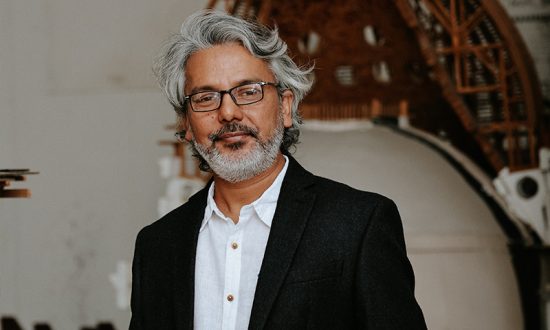Prof Pratyush Shankar is the Provost at Navrachana University, the premier multi-disciplinary private university in Vadodara, Gujarat. Prof Shankar joined Navrachana University as the Dean of the School of Environmental Design and Architecture (SEDA) in mid-2020. A strong believer in the transformative potential of good teaching, Prof Shankar has been spearheading efforts to improve teaching, introducing choice-based curriculum along with emphasis on innovative pedagogies to improve students learning. Prior to Navrachana University, Prof Shankar taught at the Faculty of Architecture at CEPT University for more than two decades, where he was responsible for ushering in major reforms by introducing choice-based learning, flexible curriculum and major/minor based Post Graduate programs.
Prof. Shankar is a senior fellow of the prestigious Humboldt Fellowship by the Humboldt Foundation in Germany. He is a Ford Asia fellow and won the JK National Award of Architect of the Year in 2013 for residential design. He has been teaching at TU Darmstadt in Germany as an invited guest professor for the last six years. Recently he was also appointment International Ambassador of the University of Bonn.
The objective of education is to develop human beings capable of rational thought and action courage and resilience, scientific temper, creative imagination, and strong values. This is also what the New Education Policy lays out clearly. Over the years there has been a gradual shift from learning to scoring marks. This has assumed worrying proportions as instead of learning and teaching, the focus is only on how to get good marks. This is a big concern, especially in a world-changing as fast as the world we are living in.
In a rapidly evolving employment landscape and global ecosystem, it is becoming increasingly critical that children not only learn but more importantly learn how to learn. The purpose of education must be reprogrammed to move towards less content and more towards learning. The things to learn to survive and thrive in an increasingly competitive world will be thinking critically and solving problems, being creative and multidisciplinary, innovating adapting, and learning new things in novel and changing fields.
The students need to be given increased flexibility and choice of subjects to study, including subjects in physical education, arts and crafts, and vocational skills. A wide choice of subjects and courses will lead to holistic learning and development and give students the opportunity to chart their own courses in life. This is all the more necessary considering the evolving employment landscape. Even the New Education Policy of 2020 talks about building life skills among students and young children.
I am happy to share that Navrachana University is amongst the very few academic institutions in India that have now implemented a completely flexible and broad-based curriculum framework which is informed by its philosophy of creating a ‘T’ shaped personality of students.
The choice-based curriculum serves to students a plethora of choices and the flexibility to choose from courses spanning across various schools (departments) by breaking down the exclusivity of silos and encouraging an inter-disciplinary and multi-disciplinary approach to learning. It also challenges teachers to have the capacity to implement experimental pedagogies.
Courses are classified through typologies that reflect the method of teaching, the system of evaluation, etc. These various course typologies are lectures, discussion seminars, research seminars, studios, workshops, guided research, independent studies, and laboratory work. A common framework that applies to the curricula of all programs offered was the most important innovation that can facilitate the move to the choice-based curriculum.
The freedom to create an exclusive curriculum enables students to form unique course combinations in alignment with their own interests. For instance, a student enrolled in B. Tech Computer Science Engineering program of the School of Engineering and Technology can select an elective course from the School of Environmental Design and Architecture if it interests him/her.
Our present first year batch has over 40 elective courses to choose from not to mention the many mandatory courses available as electives. Next year, this number will rise to around 80 courses and then 120 and so on. In a few years from now, every student in any semester would have a choice from around 160 courses to choose from. Moreover, from the coming academic year, we will offer major and minor degrees to all students. So a student with a major in chemistry can have a minor in journalism or vice versa.
Implementing such a complex choice-based system requires a whole different way of looking at academic administration. From universal timetable and its optimisation to mapping teaching resources and deploying the best of digital technologies, a plethora of administrative measures needs to be undertaken to ensure a seamless experience of course selection and registration for students.
Choice-based curriculum, with life skills embedded in them, is the need of the hour and all educational institutions must adopt a flexible curriculum at the earliest. From our experience, I can say that the entire ecosystem and all stakeholders have to work in sync to make choice-based curriculum a reality and realise its objectives.




